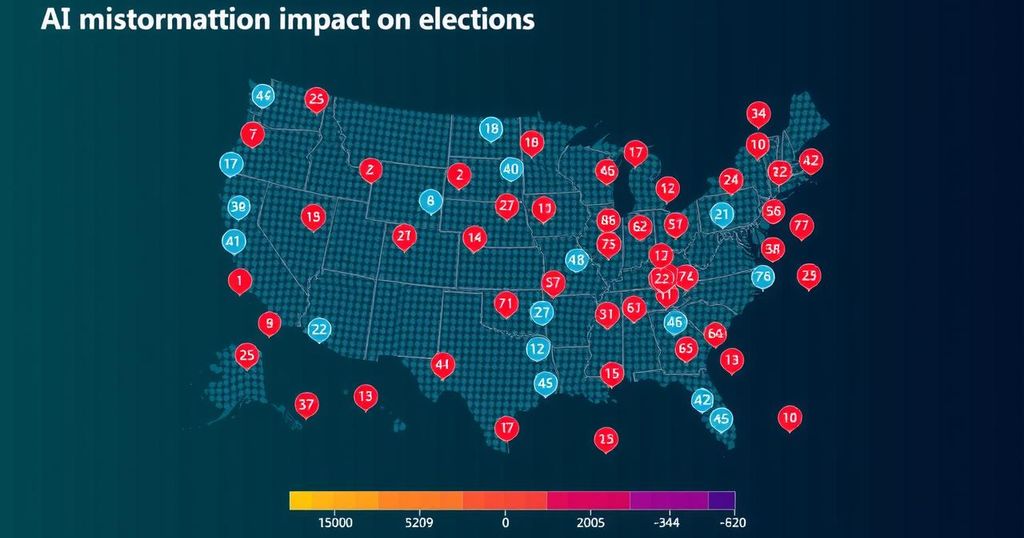Meta Reports Minimal Impact of AI on Election Misinformation

Meta reports that generative AI content made up less than 1% of election-related misinformation in significant global elections. The company blocked numerous requests for AI-generated content aimed at deepfakes of political figures and dismantled several covert influence operations. Additionally, they criticized rival platforms for hosting misleading content linked to foreign interference, committing to ongoing policy evaluations in the future.
At the beginning of this year, concerns regarding the potential misuse of generative artificial intelligence (AI) to manipulate global elections and disseminate disinformation were prevalent. However, by the year’s conclusion, Meta reported that such fears largely did not materialize on its platforms—Facebook, Instagram, and Threads. According to Meta, its assessment was based on observations from significant elections held worldwide, including those in the United States, Bangladesh, Indonesia, India, Pakistan, the European Union, France, the United Kingdom, South Africa, Mexico, and Brazil.
Meta indicated that although there were some verified or suspected instances of AI being employed for disinformation, the overall volume of such cases remained minimal. The company affirmed that its existing policies and mechanisms effectively mitigated the risks associated with generative AI content. They noted in their blog post, “during the election period in the major elections listed above, ratings on AI content related to elections, politics, and social topics represented less than 1% of all fact-checked misinformation.”
Additionally, Meta’s Imagine AI image generator purportedly blocked approximately 590,000 requests that aimed to produce images featuring prominent political figures like President-elect Trump and President Biden in the lead-up to election day, thus preventing the potential generation of election-related deepfakes. The company found that coordinated groups attempting to sunder propaganda and disinformation only realized marginal advances in content production through generative AI.
Importantly, Meta stated that the effectiveness of their measures against covert influence campaigns was not hindered by the use of AI. Their strategy emphasizes monitoring the behaviors of accounts rather than the content they produce. The company also reported dismantling around 20 hidden influence operations globally, intended to thwart foreign interference. Notably, the majority of these disrupted networks lacked genuine audience engagement and employed artificial likes and followers to enhance their perceived popularity.
In a broader view, Meta critiqued other platforms, asserting that false videos associated with Russian influence operations frequently appeared on X (formerly Twitter) and Telegram. Reflecting on the developments of the past year, Meta committed to continually evaluating its policies and communicating forthcoming adjustments in the months to come.
This article discusses findings shared by Meta regarding the impact of generative AI on misinformation during global elections, particularly highlighting their limited role in the election-related misinformation across several significant elections held in various countries. The context surrounds earlier concerns over AI’s potential misuse for spreading propaganda but contrasts this with Meta’s claims of effective measures in place that mitigated such risks. It illustrates the company’s approach to handling disinformation and its efforts to prevent deepfakes generated by AI, signifying a shift in the narrative about AI’s influence on electoral integrity.
In conclusion, Meta’s assessment reveals that fears surrounding the impact of generative AI on election-related misinformation were largely unfounded as the technology accounted for less than 1% of fact-checked misinformation during crucial electoral periods. The company’s proactive measures, including blocking harmful content requests and taking down covert influence campaigns, illustrate its commitment to safeguarding the integrity of its platforms against external manipulation. As Meta continues to evaluate its policies, the emphasis on behavior-focused monitoring may serve as a model for combating disinformation effectively.
Original Source: techcrunch.com






